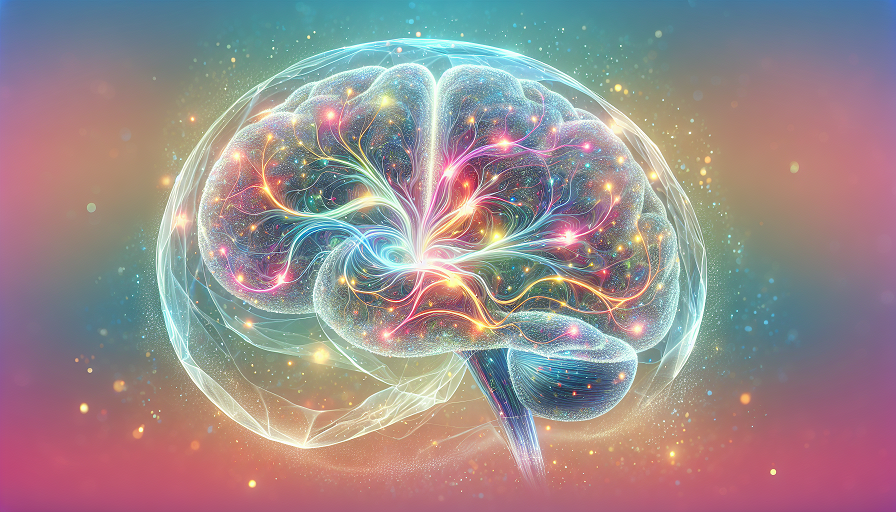
Ever had “butterflies” in your stomach before a big test or felt a stomachache after a stressful day? It’s no coincidence. Your gut and brain are deeply connected, constantly sending signals back and forth. This relationship, often called the gut-brain axis, is proving to be more than just a quirky link—it’s a cornerstone of mental health and cognitive performance. Understanding how your gut microbiome influences your brain might be the key to unlocking sharper thinking, better memory, and a brighter mood.
Contents
How the Gut Microbiome Communicates with the Brain
Your gut is home to trillions of microorganisms, collectively known as the gut microbiome. These bacteria, fungi, and other microbes aren’t just freeloaders—they play an essential role in digestion, immune function, and, surprisingly, brain health. Communication between the gut and brain happens through a few key pathways.
The Vagus Nerve
Think of this as a two-way superhighway connecting your gut to your brain. Signals from the gut travel along the vagus nerve, influencing everything from mood to cognitive function. For example, when certain gut bacteria produce neurotransmitters like serotonin and dopamine, those signals get sent to the brain, affecting how you feel and think.
Chemical Messengers
Your gut bacteria produce compounds that directly impact brain health. Short-chain fatty acids (SCFAs), for instance, are byproducts of fiber fermentation in the gut. These SCFAs can reduce inflammation in the brain and support the growth of new neurons, a process essential for learning and memory.
The Immune System
Gut bacteria regulate immune responses, and an imbalanced microbiome can lead to chronic inflammation. Inflammation in the body often extends to the brain, where it’s linked to conditions like brain fog, depression, and even neurodegenerative diseases.
When the gut microbiome is healthy and diverse, these communication lines function smoothly, supporting clear thinking and emotional balance. But when harmful bacteria take over—due to poor diet, stress, or illness—this system breaks down, potentially leading to cognitive issues.
Probiotics and Their Potential to Boost Mental Performance
If the gut microbiome plays such a critical role in brain health, how can we keep it in top shape? Enter probiotics: live microorganisms that help restore and maintain a healthy gut environment. Probiotics can increase the population of beneficial bacteria, improving the gut-brain connection and, by extension, cognitive function.
Research is beginning to uncover the specific ways probiotics enhance mental performance:
Improved Mood and Reduced Anxiety
Certain strains of probiotics, like Lactobacillus rhamnosus and Bifidobacterium longum, have been shown to reduce symptoms of anxiety and depression. These effects are thought to result from increased production of neurotransmitters like serotonin, often referred to as the “feel-good” chemical.
Enhanced Memory and Learning
Studies suggest that probiotics can boost cognitive function by reducing inflammation and supporting neurogenesis. For example, one study in Frontiers in Aging Neuroscience found that older adults who took probiotics performed better on memory tests than those who didn’t.
Reduced Brain Fog
Probiotics can help combat brain fog by balancing the gut microbiome and reducing systemic inflammation. A healthier gut leads to clearer communication between gut and brain, helping you think more sharply.
Incorporating probiotics into your routine doesn’t have to be complicated:
- Fermented Foods: Yogurt, kefir, kimchi, sauerkraut, and miso are rich in probiotics. Adding these to your meals is an easy way to support your gut health.
- Supplements: Probiotic supplements are widely available and often contain specific strains targeted for mental health benefits. Look for supplements with strains like Lactobacillus and Bifidobacterium.
- Prebiotics: Don’t forget to feed your probiotics! Prebiotics, found in foods like garlic, onions, bananas, and whole grains, provide the fiber that beneficial bacteria thrive on.
The gut-brain connection is more than just a theory—it’s a powerful interplay that can shape how we think and feel. By nurturing your gut microbiome through a healthy diet and probiotics, you can support both your mental and cognitive health. It’s not just food for thought; it’s food for your brain.

